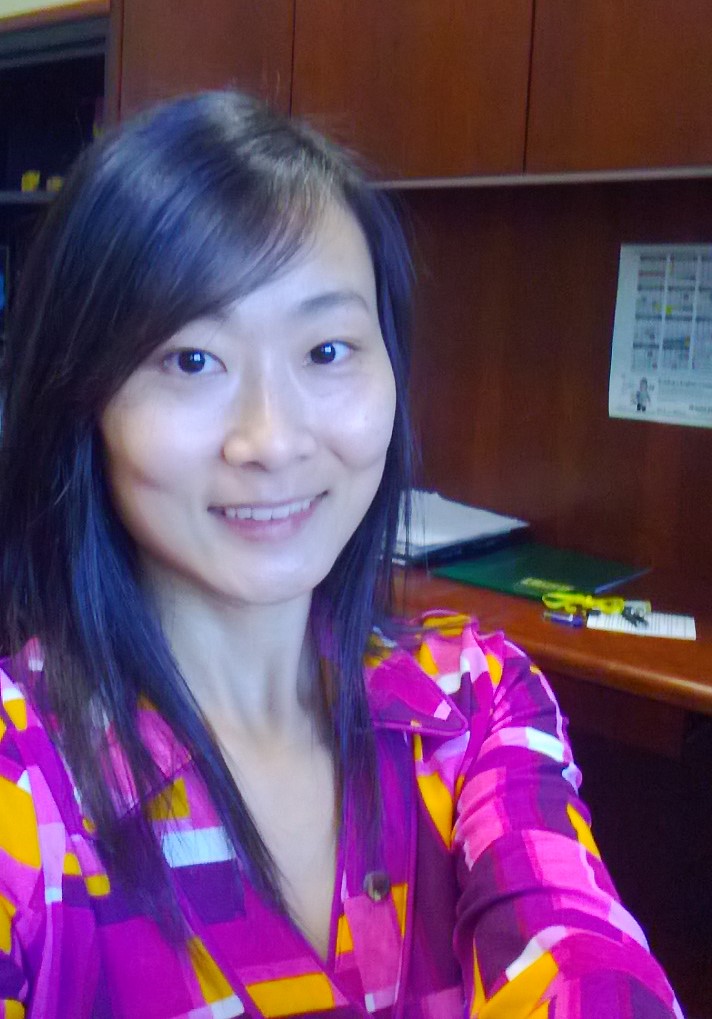When a highway decides to add another lane, or when a store adds more delivery trucks to their fleet in anticipation of higher consumer demand, you can thank people like Xia Jin, an Associate Professor in the Department of Civil and Environmental Engineering.
Jin works in transportation engineering, and is the head of the Travel Behavior and System Modeling Lab, which studies human and freight mobility in cities and urban environments, with a focus on the fundamental mechanism of interactions between people, economic activities, and the physical and social forms of urban systems.

Transportation is not only an important aspect of everyday life, but also an important component of economic prosperity.
“Investment in transportation infrastructure needs to be considered carefully, because it has great implications for society,” Jin says. “What I do is provide predictions of future demand for transportation systems to local, state, and federal government planning agencies, so that they can take those predictions into account when developing future transportation plans.”
Just as companies do market research before launching new products or services, Jin compares her work to studying consumer behavior on transportation. She studies traveling preferences and needs and translates the responses into mobility choices. Based on observations of where people go each day, how many locations they visit, and which modes and which routes they use, she uses computational models to simulate people’s behavior and future demand over the next ten to thirty years.
Jin finds it impossible to name a favorite research project, saying she loves them all equally. One current project focuses on the implications of new vehicle technologies and mobility options, such as ride shares, autonomous vehicles, and micromobility (small, lightweight vehicles operating lower speeds, such as electric bikes and scooters). “Fifty years ago, society was car-oriented, but today, younger generations are owning fewer cars and driving less, so we’re studying how the changes in demographics and people’s preferences is impacting transportation.” Jin and her students have published a dozen papers in top journals based on this study, with several more under review.
“It’s a significant work in terms of preparing agencies and investment decision-makers to be more proactive in terms of change. Instead of using old priorities, we need to develop new policies and regulations to make more sustainable decisions and build more accessible transportation infrastructure.”
She’s also working on a project that studies e-commerce. E-commerce has been on the rise for the last decade, user-centric services and on-demand delivery have already changed both demand and the traditional supply train. However, the global pandemic “fast-forwarded things by ten years,” Jin says, with the number of people purchasing food and groceries skyrocketing, so that she believes more people will adopt e-commerce even when the world goes back to “normal.”
“We’re trying to determine what the long-term impacts are. Individual trips to stores are reduced, but there are more deliveries in neighborhoods, so we’re looking at ways to estimate trips saved/trips generated. Will there be more emissions? Will there be more damages to pavement in residential areas by commercial trucks? Will there be issues with parking?” The project might explore reveal ways to increase transportation efficiency such as delivering to a central location and people pick up packages on their way home.
The global pandemic has also had an impact on telecommuting, another research project of hers. Telecommuting has been around since the 1990s, but during the recent health crisis, companies started realizing in large numbers that telecommuting not only does not reduce productivity (a long held fear), but actually makes them more competitive when hiring. The Miami Dade Transportation Planning Organization is currently recommending policies for local firms to develop telecommuting policies. “Whether it’s working from home completely or taking shifts to reduce traffic on road during peak hours, telecommuting can be a viable employment option moving forward.”
Jin was recently named a 2020 FIU Faculty Convocation Awardee in the Research and Creative Activities category. Convocation awardees earn recognition for their impactful teaching, outstanding research and exemplary service. She was delighted when she heard that she had been given the award.
“It feels amazing that my work is being recognized. It feels like I’m doing something right. The most rewarding aspect of doing research is helping my students grow and establish themselves, and seeing them recognized by top journals at top conferences and build their careers. It’s been a wonderful journey for me as well, having the privilege to grow together with my students.”
FIU Women in Research is a regular feature of ADVANCE News that examines the impressive work female faculty members are doing at the university.
